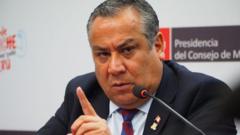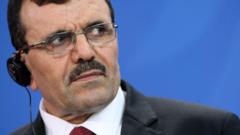A bitter feud has emerged within the family of Singapore's founding father, Lee Kuan Yew, as his children's differing interpretations of his will regarding his ancestral home reveal cracks in the country’s political fabric and questions about governance authority.
Family Feud and Heritage: Lee Kuan Yew's Legacy in Limbo

Family Feud and Heritage: Lee Kuan Yew's Legacy in Limbo
The dispute over the family home of Singapore’s founding father highlights deeper issues of governance and legacy amidst political tensions.
The bungalow, built for a Dutch trader during the colonial era, has become a symbol of Singapore’s history and Lee Kuan Yew’s remarkable journey in shaping the country. It is where he lived for several decades, founded his political party, and led Singapore to unparalleled economic prosperity. Despite his desire for the home to be demolished after his passing, the question of its fate remained unsettled—a reflection of the conflicting views within the Lee family.
After Lee Kuan Yew's death in 2015, tensions escalated between his children. The eldest, who served as Singapore's prime minister until May, claimed that the wishes regarding the bungalow were vague, leading to an unresolved dilemma that has strained familial bonds. While his siblings favor demolishing the house as per their father's intentions, one sibling resides there, complicating decisions regarding the estate.
Lee Hsien Yang, the youngest son, has recently vocalized his discontent. Living in London, he expressed feelings of persecution related to the ongoing family conflict. “The idea that one good man at the center can control everything just won't suffice,” he stated, emphasizing a growing sentiment for enhanced accountability within Singapore's political landscape.
As the rift within the Lee family continues, it inevitably mirrors larger societal discussions about the very foundations of Singapore’s governance, hinting at the struggles that accompany the legacies left behind by its revered leaders. In grappling with their father’s estate, the Lee siblings find themselves caught in tussles that reflect the broader challenges of transitioning from a single-dominant political paradigm to a more open and equitable democratic discourse.


















